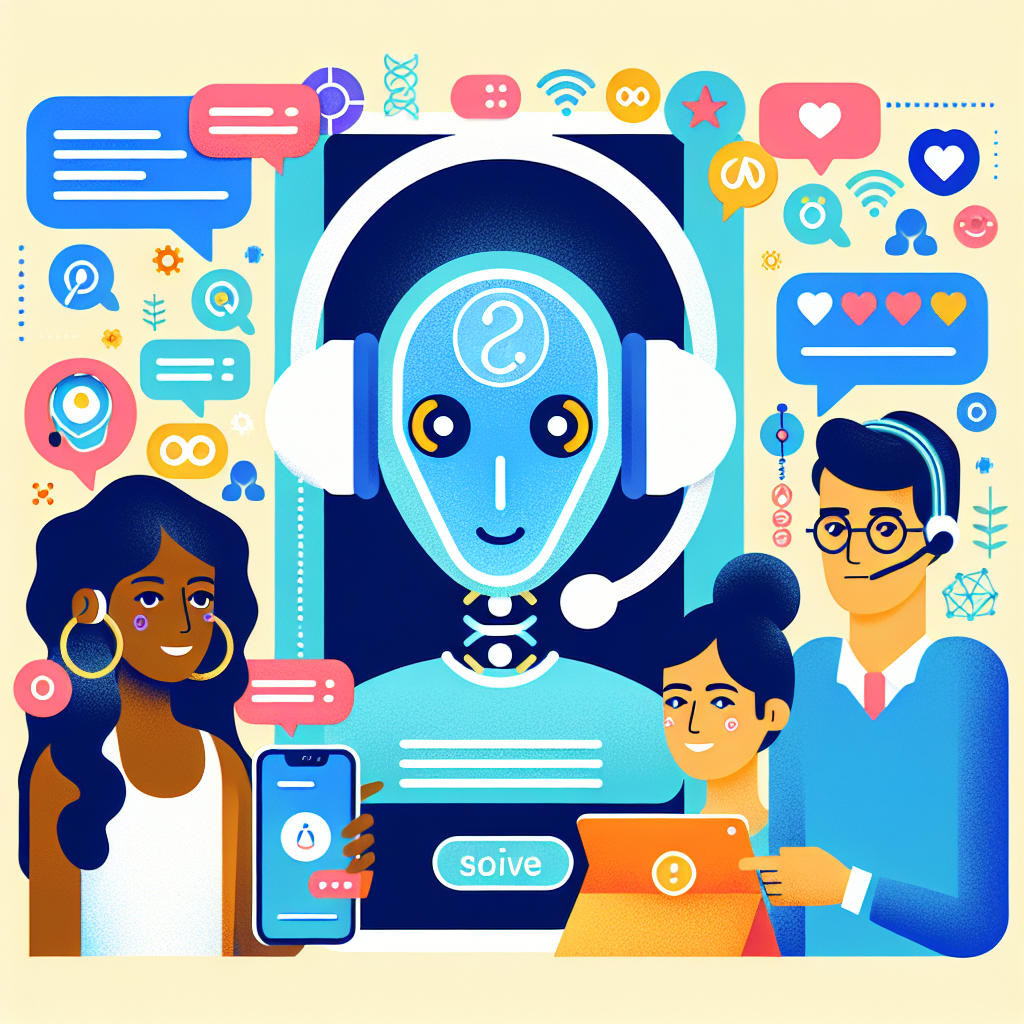In today’s fast-paced, technology-driven world, customer service interactions have become increasingly important for businesses looking to differentiate themselves from their competitors. With the rise of artificial intelligence (AI), companies have been able to personalize customer service interactions like never before, leading to higher customer satisfaction rates and increased loyalty.
AI has revolutionized the way companies interact with their customers by providing personalized experiences tailored to the individual needs and preferences of each customer. From chatbots and virtual assistants to predictive analytics and machine learning algorithms, AI has enabled businesses to deliver more efficient and effective customer service interactions.
One of the key benefits of using AI in customer service interactions is its ability to provide real-time, personalized recommendations to customers based on their previous interactions with the company. For example, AI-powered chatbots can analyze a customer’s purchase history and preferences to recommend products or services that are likely to be of interest to them. This not only helps to increase sales and revenue for the company but also enhances the overall customer experience by providing relevant and timely information.
Another way that AI is revolutionizing customer service interactions is through the use of predictive analytics. By analyzing customer data and behavior patterns, AI algorithms can predict future customer needs and preferences, allowing companies to proactively address issues or concerns before they arise. For example, AI-powered systems can identify potential service disruptions or product defects and alert customers before they experience any problems, ultimately improving customer satisfaction and loyalty.
AI also plays a crucial role in personalizing customer service interactions through the use of natural language processing (NLP) technology. NLP allows AI-powered systems to understand and respond to customer inquiries in a more human-like manner, making interactions more engaging and personalized. This technology enables companies to provide faster and more accurate responses to customer queries, ultimately leading to higher levels of customer satisfaction.
Furthermore, AI-powered systems can analyze customer sentiment and emotions in real-time, allowing companies to tailor their responses and interactions accordingly. By understanding the emotional state of the customer, AI can provide empathetic and personalized responses that resonate with the customer on a deeper level, ultimately building stronger relationships and increasing customer loyalty.
Overall, the role of AI in personalizing customer service interactions cannot be overstated. By leveraging AI technologies such as chatbots, predictive analytics, NLP, and sentiment analysis, companies can create more personalized and engaging experiences for their customers, leading to increased customer satisfaction, loyalty, and ultimately, business success.
FAQs:
Q: How can AI help businesses provide personalized customer service interactions?
A: AI can help businesses provide personalized customer service interactions by analyzing customer data and behavior patterns to predict future needs and preferences, providing real-time recommendations based on previous interactions, and using natural language processing technology to understand and respond to customer inquiries in a more human-like manner.
Q: What are some examples of AI-powered technologies that can personalize customer service interactions?
A: Some examples of AI-powered technologies that can personalize customer service interactions include chatbots, virtual assistants, predictive analytics algorithms, natural language processing technology, and sentiment analysis tools.
Q: How can AI improve customer satisfaction and loyalty?
A: AI can improve customer satisfaction and loyalty by providing personalized recommendations, proactive service solutions, empathetic responses, and faster, more accurate customer service interactions. By tailoring interactions to the individual needs and preferences of each customer, AI can create more engaging and satisfying experiences that ultimately lead to increased customer loyalty.
Q: Are there any drawbacks to using AI in customer service interactions?
A: While AI can greatly enhance customer service interactions, there are some potential drawbacks to consider, such as the risk of privacy breaches, data security concerns, and the potential for AI systems to make errors or misinterpret customer inquiries. It is important for businesses to carefully consider these factors and implement appropriate safeguards to mitigate any potential risks.

